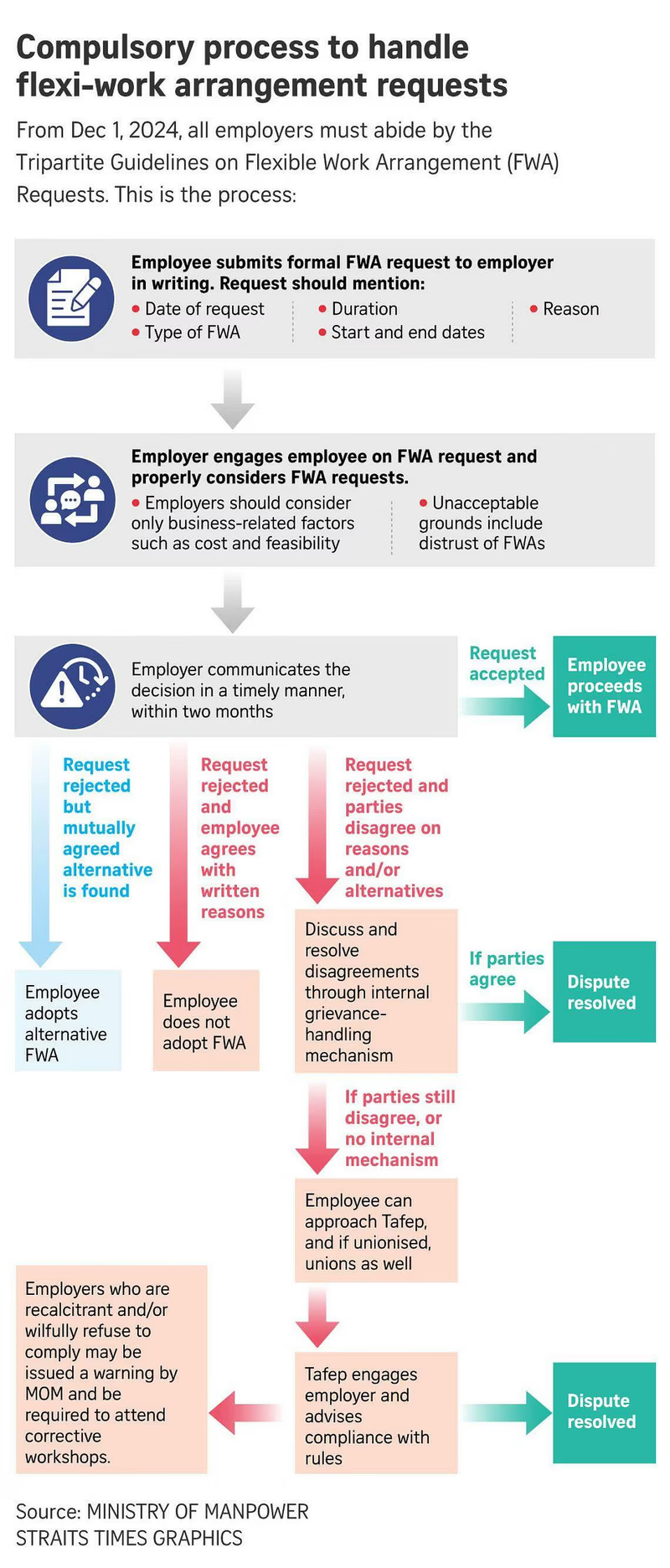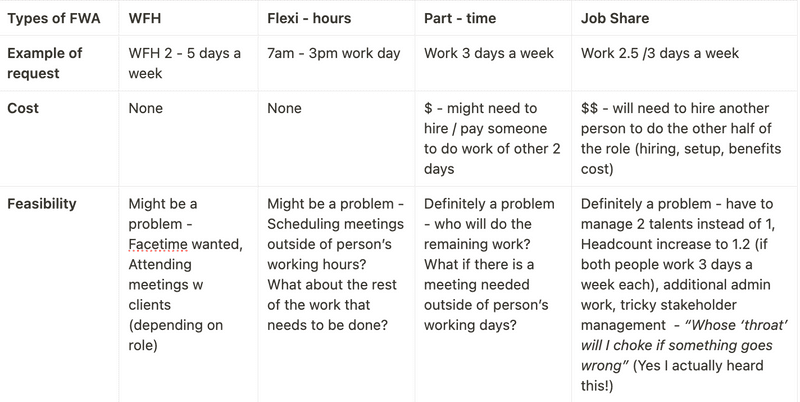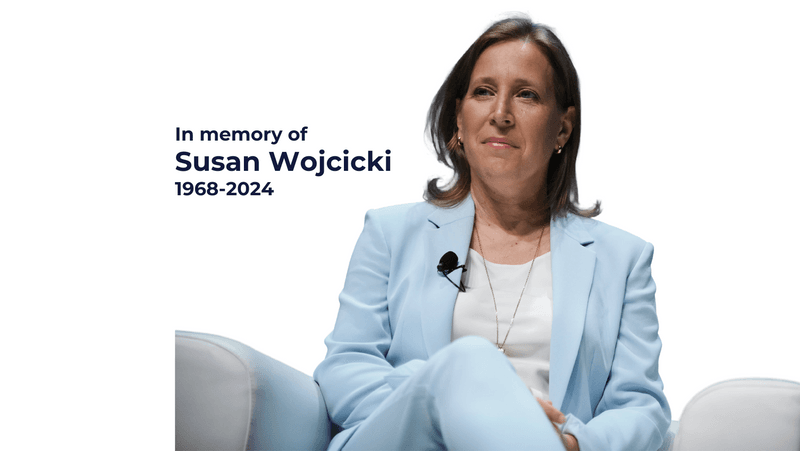By : Khatija Aslam
What the data is telling us
Real time data from the Moxy movement (based on aggregated data from women across a 100+ companies) shows that :
- Only 2 out of 5 women feel comfortable negotiating deadlines, work load and boundaries without worrying about negative consequences.
- Only 36% of companies are open to exploring different flexibility options (part time, job sharing) based on individual needs.
New Guidelines in Singapore on Flexible Work Arrangements
So to see the new Tripartite Guidelines on Flexible Work Arrangement (FWA) being released in Singapore feels like a step in the right direction and I can’t wait to see how these numbers above shift when we review it again next year!

Source : The Straits Times
What does this mean for employees?
However, because the guidelines state that employers need to seriously consider the request and can only reject it based on business reasons - such as cost or feasibility - there is an ongoing debate about how effective this will be and it also makes me question how much real change will these guidelines truly drive in workplace culture?
So, I made a table of the types of FWA requests below that could come in and what could possibly be reasons for rejection (this is based on my own experience working full time ▶ part time ▶ now a job share and talking to lots of HR folks and companies during user interviews for Moxy).
I think we will probably see progress in the WFH and Flexi - hours space, provided managers are supportive, keep an open mind to the requests and operate empathetically.
I know it definitely gave me courage to ASK for my sabbatical and eventually negotiate a job share arrangement when I saw leaders and managers around me ‘living loudly’ (yes, actually living and not just leaving loudly) because it meant that I could safely take my request to them and they would most likely understand.
But for deeper change i.e. part time, job share - which by the way can give businesses access to a WHOLE NEW POOL OF TALENT - i.e. working mothers, those with caregiving responsibilities, fractional employees, we will need companies and leaders to adopt a huge mindset shift and allocate budget and/or headcounts to make it work.
I wonder if the Singapore government can also help subsidise, provide grants and tax rebates to companies to support this shift?

Thinking about requesting for a Flexible Work Arrangement (FWA)?
Here are some tips on what you can do to set yourself up for success :
- Clarity - reflect and be clear about WHY you want to adopt a FWA approach. Is it for childcare reasons, caregiving, do you want to pursue a side passion? It helps to write down WHY you are going down this route, WHAT you need to make it work for you i.e. WFH, Flexi hours, part time and then think about how long you are looking for this arrangement to work. Clarity upfront will help immensely in your conversations with your company and also set you up for success in getting your request approved.
- Do your research - have a look around your organization and see if other people have adopted FWA. Reach out to them for a coffee and have chat on how they went about it, how their experience has been so far and if they have any advice for you on how to go about the request. If you don't have enough examples in your organization, research to look and see if you can find any case studies or examples from other organizations within your industry and reach out to those people for a chat!
- Conversation first - have a conversation first with your line manager about why you would like to put in a request for a FWA to get their point of view. If they have reservations, try to understand what is holding them back by asking questions like.. 'Can you tell me more..', 'I would love to understand better why you think this would not work..'
- Submit your request - once you have buy in from your manager, submit your official request and it will have a higher chance of getting approved. If you don't have buy in from your manager, reach out to your HR business partner to have an informal chat about what you are thinking and ask how they can support you in making your request a reality i.e are there other teams or parts of the organization where FWA is more likely to work? Is there another way to go about it to make it a win win. By having a collaborative discussion, you can reach an arrangement that is mutually beneficial to both parties.
Thank you for joining us as we shared our perspective on how to approach flexible work in the workplace. If you wish to share your insights, join the movement on Moxy Movement to make your voice heard! And if you are an employee looking to get some help on how to navigate your FWA request, contact me on khatija@itsmoxy.com.


